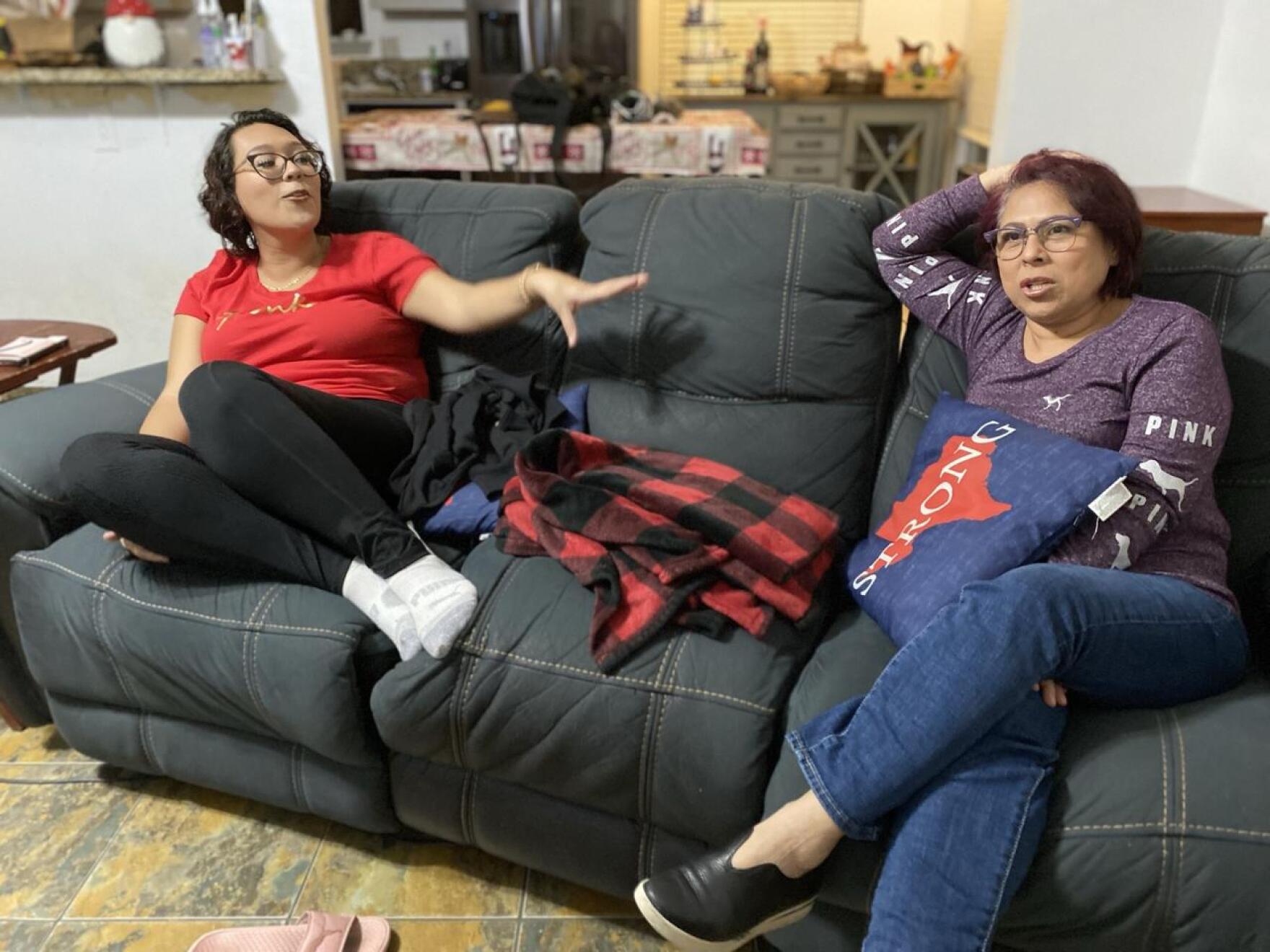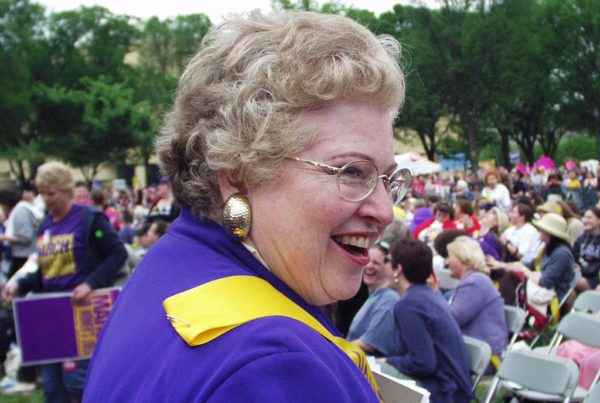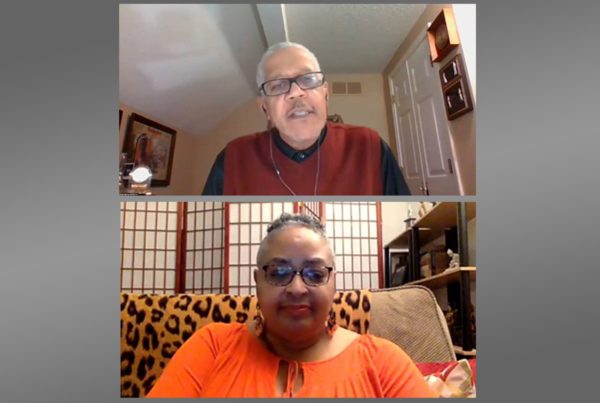Carlota Balbuena and her daughter, Alejandra Balbuena, have watched their fair share of telenovelas. You know, those melodramatic series that air daily on Spanish-language networks.
But these North Texas TV watchers say they’re are no longer interested in that type of drama.
“I had a moment with telenovelas where I didn’t like the plots anymore,” 21-year-old Alejandra Balbuena said. “Like, I wasn’t seeing them fall in love. I was seeing the same narcos, drugs … a lot of violence. I’m seeing these types of tropes that I don’t like. Like, I feel if you’ve seen one narco novela, you’ve seen them all.”
She and her mom are now hooked on a different kind of serialized drama known as a dizi. They’re Turkey’s version of melodramas, and there’s something for everyone — period dramas, present day-dramas, rom-coms and action-packed series.
“I subject everyone to it, even if they don’t understand it,” said Alejandra Balbuena, who recently finished watching “Baht Oyunu,” or “Twist of Fate.”
During the past few years, Spanish-language networks in the US have been airing these high-production shows dubbed in Spanish.
Just don’t call them telenovelas or soap operas. Dizis are a category of their own, according to Carolina Acosta-Alzuru, a media studies professor at the University of Georgia in Athens.
She’s tracked the rise of Turkish shows in Latin America and the US and teaches a course on telenovelas and dizis and their impact on culture and society.
Five years ago, Acosta-Alzuru noticed something unusual when she looked up TV schedules in other countries: Programming grids that used to be packed with Mexican telenovelas listed Turkish titles instead.
“There are similarities. You know, both of them [telenovelas and dizis], the spectacle is really the emotions,” she said. “Many are centered on a love story. Many of them present romantic triangles. Both are watched a lot and criticized a lot.”
But there are key differences. Dizis are written as weekly shows, not daily shows, and episodes often last more than two hours without commercials. In other words, it’s like Turkish TV screenwriters write a film every week.
“The way they build the crescendo, the dramatic crescendo, is way more intense than in a telenovela. They take you there in a way that is sometimes with a surprise and a twist, but it takes you slowly. The Turkish dizi is not afraid of slow,” Acosta-Alzuru said. “The telenovela in the last 10 years, especially the last five years, has become very afraid of slow. The scenes are short, many more scenes, shorter scenes.”
The desire for more variety and binge-watching helps explain the new demand for Turkish dizis. Today, Turkey is the second-largest exporter of television content after the US. Global sales of Turkish TV have jumped from $10,000 about 15 years ago to more than $350 million more recently.
American friends discover dizis
The slow burn development of a romantic relationship between two main characters is part of the appeal of these shows, even if it sometimes tests your patience.
“They just know how to utilize chemistry so well,” said Kristin Curran, who co-hosts a podcast called “Dizzy for Dizi.”

Kristin Curran and Ashley Faria are lifelong friends who started the podcast “Dizzy for Dizis” after discovering a rom-com called “Erkenci Kuş,”which translates to “Early Bird.” Photo Courtesy of “Dizzy for Dizi” podcast
Another factor: Turkey’s restrictions on what can and can’t be shown on television.
“You can’t just throw them in bed. You can’t just have them getting all hot and heavy, so you have to build on these other intimacies,” Curran said. “They’ll have these run-ins or they’ll just share these little moments and vulnerabilities that I think builds intimacy, in my opinion, better than sexual intimacy. So, something just clicks, and it just works.”
Curran and Ashley Faria, lifelong friends in their 30s, started the “Dizzy for Dizi” podcast three years ago after Feria discovered a rom-com called “Erkenci Kuş,”or “Daydreamer,” which starts off with a Bollywood-style dance sequence.
“The main character, Sanem, is sort of dancing down the street. She wakes up, and she’s singing and it’s just a lot of fun.”
By the time Faria had finished watching the first episode, she said, “I was a goner. I was completely hooked.”
Afterward, Faria desperately needed to talk with someone about the show. It took two months of persuading, but she eventually convinced Curran to watch it.
Faria and Curran are based in Southern California and say they’d love it if more Americans discovered Turkish shows. Most of their listeners are actually from outside the US.
“It’s been a really special experience because of how international dizis are,” Faria said. “Learning more about Turkey and about Turkish culture and then, as an extension, all the different fans and learning about their own culture and how they might relate to Turk dizi in a different way than we do as Americans.”
The two focused their attention this past year on a show called “Sen Çal Kapimi,” or “You Knock on my Door,” starring Kerem Bürsin and Hande Erçel. Bürsin grew up in Texas and graduated from high school near Houston. The series developed a huge following worldwide, even making it on Twitter’s top 10 list of most Tweeted shows in 2021 (it ranked 9th).
Connecting with Latino audiences
For Latino audiences, there are aspects of Turkish culture that resonate, said Carlota Balbuena, the mom in North Texas who’s originally from Mexico.
“The family, like we always say, is important. You need to respect the parents and they respect all the elders,” she said. “They try to protect the family, and they’re always together. They have the families in the same house.”
Media studies professor Acosta-Alzuru said the turning point for US Spanish-language networks happened in 2019. Telemundo had aired Turkish series at noon, but that year, rival network Univision decided to air a Turkish series called “Kara Sevda” during prime-time hours. “Kara Sevda” — known in Spanish as “Amor Eterno” or “Endless Love” — was a ratings success for Univision, Acosta-Alzuru said.
Today, both networks air Spanish-dubbed Turkish series in the evening. Instead of two-hour-plus episodes though, they’re split into shorter episodes to fit in an hour time slot.
Social media campaigns bring fans together
A growing global audience also means fans from different countries have bonded on social media, especially during the pandemic during lockdowns.
That’s the case with the series “Bas Belaşi,” which means “troublemaker.” The series is a crime procedural that some fans compare to the US shows “Castle” or “Bones.” Fans were devastated when the Turkish ATV Network abruptly ended it with the 13th episode.
Hana Laryšová, who lives in the Czech Republic and translates books and movies from English to Czech, is part of a group on Twitter that’s been pushing for a digital platform like Netflix to pick up the series. The “Bas Belasi Global” group includes women from Pakistan, France, the United Kingdom and Australia.
They check in with each other daily to decide what they’ll tweet that day to promote the series. In their spare time, they create fan videos, gifs and come up with polls to ask fans of the show.
“It’s funny because the girl from Australia is always like, ‘Sorry, guys, I need to go to sleep,’ and people on the other side of the Earth are just getting up,” Laryšová said. “We are all connected by this amazing dizi.”
Interested in discovering Turkish musicians?
Here are some suggestions:
– Zeynep Bastik’s music has been featured in several dizis, including Her Yerde Sen.
– Canozan’s music is featured in Yargı, one of Turkey’s highest rated series this season.
– Toygar Işıklı has composed and produced the soundtracks for numerous Turkish dizis, including the popular Kara Sevda.
Got a tip? Email Stella M. Chávez at schavez@kera.org. You can follow Stella on Twitter @stellamchavez.














